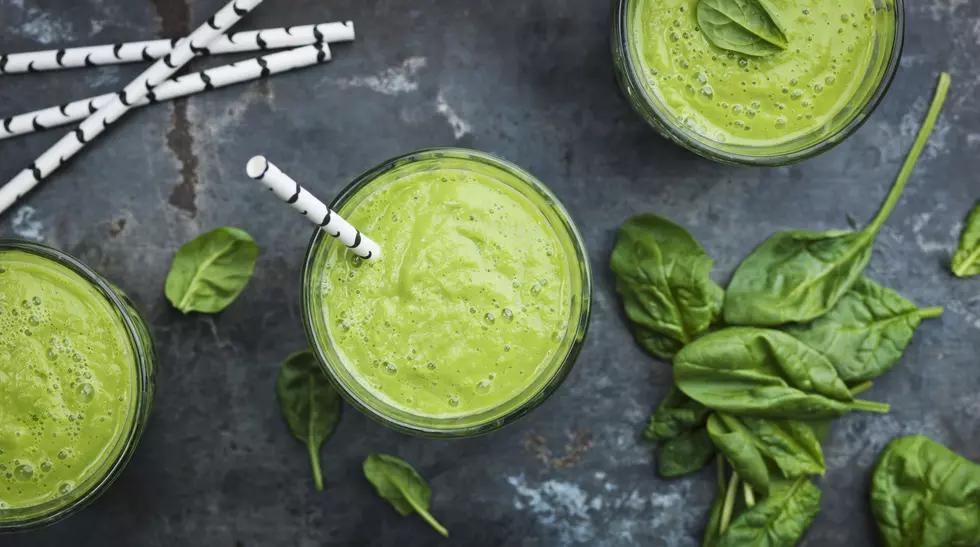
7 Genius Ways to Boost Your Energy and Focus Right Now
Feeling a little lower on energy lately? Not able to focus as well? With the pandemic continuing to cause disruptions to everyday life, it’s little wonder. Your focus and attention are being pulled in so many different directions that the additional stress can easily zap your batteries and cause that mind to wander.
As a result, you might be tempted to try things like supplements and specialty foods that promise to improve your energy and focus. But don’t be duped. “There’s little evidence that these things work,” says Robert Graham, M.D., integrative medicine physician (and vegan), founder of Fresh Med Integrative Medicine in New York City, and advisor to Performance Kitchen, a company that provides Mediterranean-diet inspired meals.
So what can you do? Experts dish on seven lifestyle strategies that can help you regain your energy and mental clarity:
1. Plantify your diet
If you’re not already moving to a plant-based diet, now’s the time to do it – and even better if you can go 100 percent whole-food, plant-only. “By eating foods with a low-glycemic index, namely fruits, vegetables, nuts and seeds, you’ll have sustained energy throughout the day,” he says. Plus, because 80 percent of your immune system lies in your gut, you want to feed your gut what it thrives on, namely fiber, which you can only get from plants. On the flip side, when you eat animal protein, the toll on your body is telling. “Your body has to work harder to absorb nutrients, which is why people often go into a food coma after eating,” Graham says.
2. Water your body
Dehydration can be a significant player in how you feel. “Mild dehydration can cause impaired cognitive functioning,” says Taylor Wolfram, R.D.N., nutrition counselor, a dietitian who specializes in plant-based nutrition, and self-care coach in Chicago. To make matters worse, fatigue can also be a symptom of dehydration. To counter this, keep a full water bottle with you at all times and get into the habit of sipping frequently. Diet can also contribute to hydration, and foods like coffee, tea, non-dairy milk, soups, fruits and vegetables, especially those high in water like cucumbers and celery, are especially beneficial to your body’s hydration. You’ll know if you’re getting enough water by checking your urine, which should be a light yellow color.
3. Rethink your meals
The debate about whether you should eat three meals or several mini-meals has raged for years, but Graham believes the every-few-hours approach wins. Again, it comes down to keeping your energy sustained throughout the day, which is what these “large snacks,” as Graham calls them, will do.
4. Get active outdoors
While exercise is key for optimal health, it also revs your energy, and yes, that applies even if you’re feeling too drained to exercise. “The increased flow of oxygen energizes you,” Graham says. Yet don’t just hit the treadmill. Instead, connect with nature every day by getting outside and taking a 30-minute walk or doing old-school exercises like jumping jacks, push-ups and sit-ups in a park or your backyard.
5. Power up with a nap
Getting the right amount of sleep should be your top priority, Graham says. Most recommendations advise that adults get seven to eight hours a night with detrimental effects if you get more or less. Yet because numerous surveys suggest that COVID-19 is having a significant negative impact on sleep, don’t be afraid to log a quick power nap during the day. “They’re an excellent way to recharge your body,” Graham says. The two caveats? Keep the nap between 10 and 15 minutes and avoid napping after 4 p.m. or else you might increase your odds of having sleep disturbances that night.
6. Set up a stress plan
You’re never going to be able to escape stress, which is why you need to learn how to manage it. Stress, after all, can make you feel more tired and inflame the insides of your body, raising your risk for chronic diseases, Wolfram says. She recommends making a list of your stressors and categorizing them as “unavailable” or “avoidable.” Focus on the “avoidable” list and see where you can cut back. Now look at the ones you deemed unavoidable and determine if they really are such, examining where you might be able to decrease stress in those areas, too. Then get a daily self-care routine in place, which might mean stretching or doing yoga, meditating, journaling, having physically distanced visits with friends and family, taking a quick brisk walk.
7. Build your happiness muscle
When a team of researchers did an MRI on the Dalai Lama’s brain, the left frontal lobe of his brain lit up. “That’s where happiness sits,” says Graham, who happened to see the MRI in action. Yet that same area also controls focus and energy, which is why finding happiness is key to improving your focus. While it can be tough in today’s time, Graham advises looking for the blessing in the mess – “you can always find something good in every situation,” he says – and connecting with people socially, even if you have to stay physically apart from them.
More From The Beet









